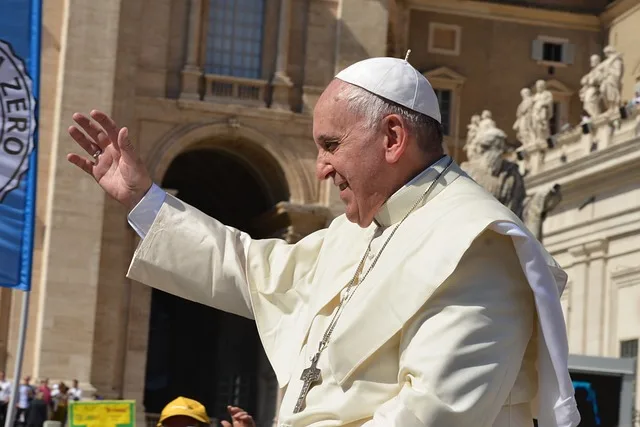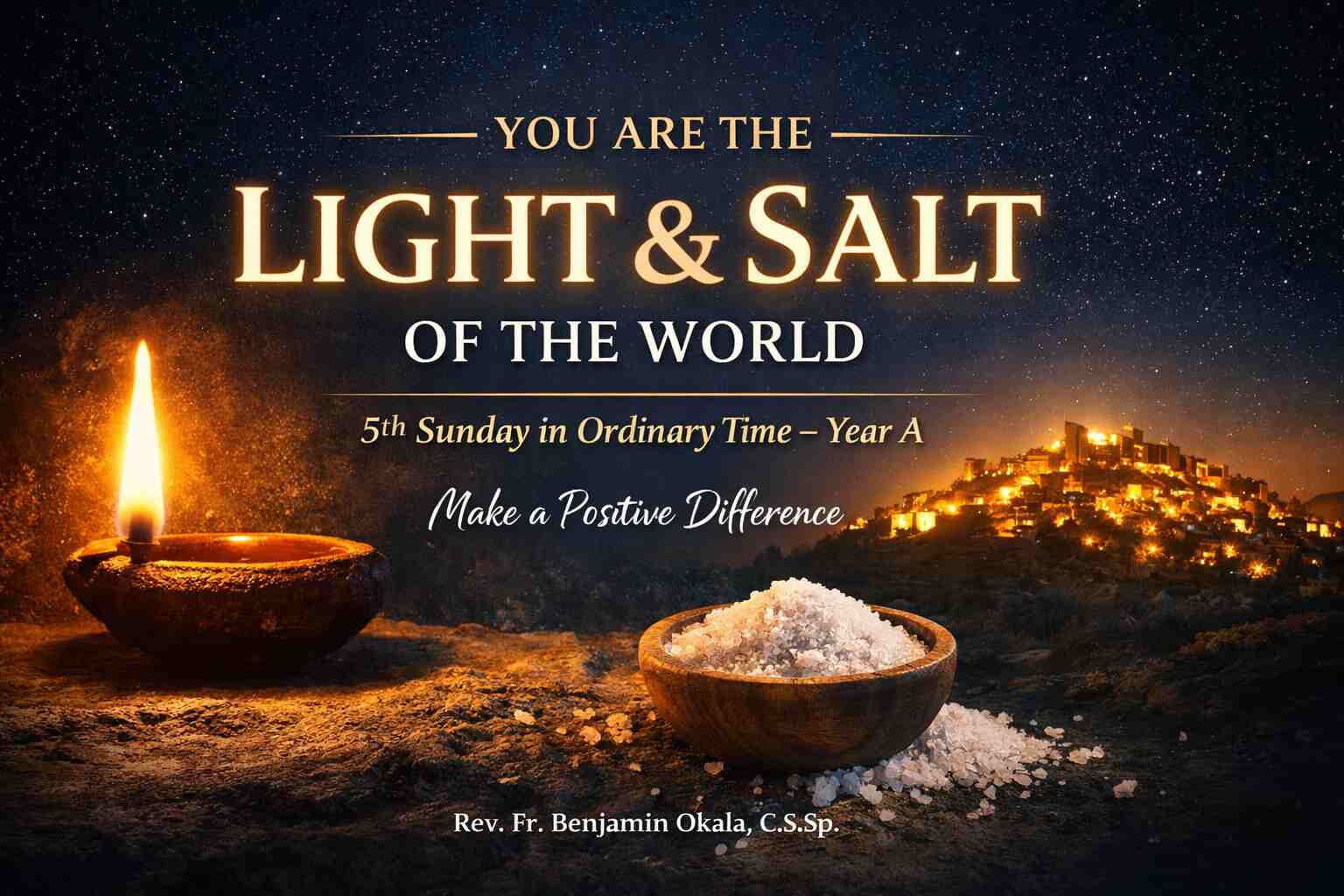FEAST OF ST. STEPHEN, FIRST MARTYR
First Reading: Acts 6:8–10; Gospel: Matthew 10:17–22
Today’s celebration is in harmony with the profound meaning of Christmas. Yesterday we joyfully celebrated the birth of our eternal King on earth, and today we celebrate the birth into heaven of His soldier. Christ entered the world so that His followers might enter heaven. In the sacrifice of the martyrs, the Church sees that as their birth into heaven. The Church, in her wisdom, chose this celebration in order to prepare our minds to be in tandem with the fate of Jesus Christ, whose mission would be to thread the path of suffering and death in order to reconcile us with God.
FORGIVENESS IS THE KEY OF BREAKING VOILENCE

In Stephen’s martyrdom, violence is overcome by love, and death by life. Therefore, today we are celebrating the birth of St. Stephen (first martyr), which springs, as it were, from the birth of Christ. Jesus transforms the death of those who love him into the dawn of life. In Stephen’s death, we have the same confrontation between good and evil, hatred and forgiveness, meekness and violence, which could be found in the Cross of Christ.
There is a popular Latin aphorism that says, “Nemo dat Quod Non Habet.” (No one can give what he does not have.). It could be material or non-material; Ipso facto, whatever you possess is what people tap from you. If you are a peace-loving person, it will come to you. If you are a troublemaker, it will come to you too.
FORGIVENESS ENGENDERS PEACE AND FRATERNAL LOVE

Any offense done to any human being is automatically done to God. It is an infliction of pain on the individual(s) that needs to be remedied or cured. Forgiveness is the only way to break up the devilish cycle of offense—violence. To forgive does not mean to let evil actions remain as they are. God is not covering up all the evil done, and He does not close His eyes and pretend not to see them.
However, God manifests His healing mercy through the Sacrament of Reconciliation. He transforms people, leads them to conversion, and changes them from selfish individuals into truly loving people. Hence, forgiveness and reconciliation are the conditio sine qua non to experience divine peace and fraternal love.
THE IMPORTANCE OF MUTUAL FORGIVENESS
The teaching about forgiveness goes back to the Lord’s Prayer: “And forgive us our trespasses, as we forgive those who trespass against us” (Matthew 6:12), which highlights the importance of mutual forgiveness in the Church. Jesus forgave his executioners from the Cross: “Father, forgive them; for they know not what they are doing” (Luke 23:34). On the other hand, in the first reading, Stephen also forgave those who stoned him to death before he died: “Lord, do not hold this sin against them” (Act 7:60).

When we are not in a good relationship with people, we should strive to reconcile with them, and when doing that, we should follow Christ’s teachings. Christ said, if your brother sins against you: 1st: one-on-one; 2nd: with one or two other persons; 3rd: with the Church, and finally treat the person like a gentile or pagan (Matthew 18:15–17). NB: Treating the person like a pagan means not to associate with him or her physically, but you do that spiritually through prayers (Matthew 18:20).
OUR FORGIVENESS HAS NO LIMIT
For Peter, he asked Jesus Christ how many times one would offend him and he would forgive—seven times? But Jesus replied, “I do not say to you seven times, but seventy times seven” (Matthew 18:22). Peter was prepared to forgive an offender up to seven times. He was quite generous. That is a lot more than most people are prepared to do. Here in our country or in some of the communities around us, most people are prepared to forgive only twice. The third time you offend them, they will roast you or bracket you. Oftentimes, when you mistakenly offend some people, they put you on their black list or book. No matter what you do to reconcile with them, you are wasting your time.
Besides, when Jesus said we are to forgive 70 x 7, he didn’t mean we should open a register and be recording people’s offenses so that when they reach 490, then we wouldn’t forgive them again. The number 70 x 7 is merely symbolic—a play on words since Peter had earlier used the number 7. However, what Jesus meant was that we are to forgive our neighbors indefinitely, no matter how many times they offend us, without any limitation. Some would offend you intentionally without any cause and would not care if they did. Even when you forgive them, they will continue to inflict pain on you. My question is, do we continue to forgive such people?
CHANGING THE BATTLEGROUND: THE BEST STATERGY FOR VICTORY FORGIVENESS

The eagle does not fight the snake on the ground. It picks it up into the sky, changes the battleground, and then releases the snake into the sky. Unfortunately, snakes are powerless and harmless and have no stamina in the air. Of course, they are useless, weak, and vulnerable, unlike on the ground, where they are powerful, wise, and deadly.
Lesson:
Do not fight your enemy in his or her comfort zone or fight your battle on the ground (revenge, jealousy, grudges, hatred, unforgiving heart, arguing or quarreling with people unnecessarily, etc). But you need to always change your battleground, just like the eagle, by taking your challenges to God in prayer (1 Peter 5:7). Take your fight into the spiritual realm through fervent prayers, and allow God to fight for you. When you are in the spiritual realm, God takes over your battles (1 Samuel 17:47; Isaiah 54:14–17). When you do this, you will definitely be assured of a clean victory
FRATERNAL CORRECTION
Sometimes, when a wrongdoer refuses to listen to us, the fault could be ours. Perhaps, our manner of approach wasn’t good enough; it was more designed to humiliate or prove the person wrong or judge the person than to gently correct or reconcile. In this case, it would aggravate the situation and not yield any fruitful results. However, when we correct people, we should do so respectfully, charitably, and gently, without humiliating or hurting their feelings unnecessarily, especially in public. Therefore, in the process of making peace, we should do it fraternally, i.e., with love, in a bid to gain the person back.
On the other hand, we should also allow ourselves to be corrected when we go wrong by admitting our faults and not making it difficult for people to approach us. Some people’s mouths are like scorpions or bombshells. Most of the time, due to our ‘ego’ or ‘attitude’, people find it difficult to approach us for fraternal correction. They may be afraid to hurt our feelings or that we may take offense and become hostile. You can read: Education without character: a case of paralysis of the mind…
Undoubtedly, nobody is above mistakes, so we should not make ourselves unapproachable or incorrigible. We gain very much when we forgive others for their offenses against us. If we refuse to forgive them, we are not hurting anyone else but ourselves, since we would forfeit God’s forgiveness of our own sins (Matthew 6:14–15).
THE POWER OF FORGIVENESS AND RECONCILIATION
There was a story of a woman who was a troublemaker and hardly forgives, though she would regret her mistakes afterward. But due to her pride and ego, she would not make any moves for reconciliation. Her husband, too, was a stone-hearted man. He continued to beat her wife, who would not stop using abusive words against him. Unfortunately, they started suffering different calamities; things were not moving well with them. Ironically, these people occupy higher positions in the Church (mere churchgoers).

In fact, they did not get any children initially for twenty years because they were under a curse from their parents, whom they treated badly. It was out of annoyance that the woman’s mother hit her hand on the ground and told them that it would not be well with them in life. But, at a point after several years, out of sympathy, the mother could not bear their sufferings and requested for them to come and see her, but they refused to go due to pride.
After some persuasions by their relatives, two years later, the couple went and reconciled with their mother, who then blessed them before she died. Subsequently, they went for Sacramental Confessions, and thus the curse was lifted and blessings ensued. As I am talking to you now, the couple has three children. This is the power of divine mercy!
POPE’S MESSAGE ON FORGIVENESS

According to Pope Francis, let us be renewed by God’s mercy. Let us be loved by Jesus. Let us enable the power of His love to transform our lives too, and let us become agents of this mercy channels through which God can water the earth, protect all creation, and make justice and peace flourish. God’s mercy can make even the driest land into a garden and restore life to dry bones (Ezekiel 37:1–14).
My dear brethren, another important factor is the quantum of air (Word of God – John 6:63) in the tires. A punctured tire can take even a good vehicle nowhere. When we look to Jesus Christ (Hebrews 12:2) and carry all our worries to God (1 Peter 5:7), then He takes over, and peace comes at once. If we allow the Holy Spirit to possess us, we will courageously bear true witness to God without fear.
PRAY WITHOUT CEASING

We are all different vehicles created by God for Him to travel around and reach various destinations. Prayer is the fuel that drives Christian life. Just as a vehicle can offer maximum mileage only if it maintains an optimum combination of fuel and oil, the mileage (the souls we gain for Christ) will directly depend on the fuel (prayer) and oil (love) within us. If a vehicle does not give us the mileage that is claimed for it, one of the first things we do is take it to the service station (the confessional).
LET US EMULATE ST. STEPHEN’S ATTITUDE TOWARD FORGIVENESS
Many people worry unnecessarily over their afflictions. They always think about how to take revenge on their offenders or enemies, directly or indirectly. Please do not ponder such things. When you concentrate on your enemies or challenges, they weigh you down. They make you become downcast and even vulnerable to demonic attacks.

However, St. Stephen, “a man full of faith and the Holy Spirit” (Acts 6:5), forgave his accusers and persecutors. He even prayed to God not to hold their sins against them but to forgive them. So, can we emulate his attitude? We need to pray seriously for the grace to always act in the same manner, especially when saying the Divine Mercy Prayer.
Finally, let us always ponder the Word, Mercy, and Love of God. The steadfast love of the Lord never ceases; His mercies never come to an end; they are new every morning. Great is thy faithfulness, O Lord, great is your faithfulness (Lamentations 3:1–22).
PRAYER:
May the Holy Spirit give you the grace to be kind, merciful, and compassionate. Also, to reconcile when necessary and to love one another unconditionally, through Jesus Christ, Our Lord, Amen.
Peace of Christ be with you…
Rev. Fr. Ben Okala, C.S.Sp.



